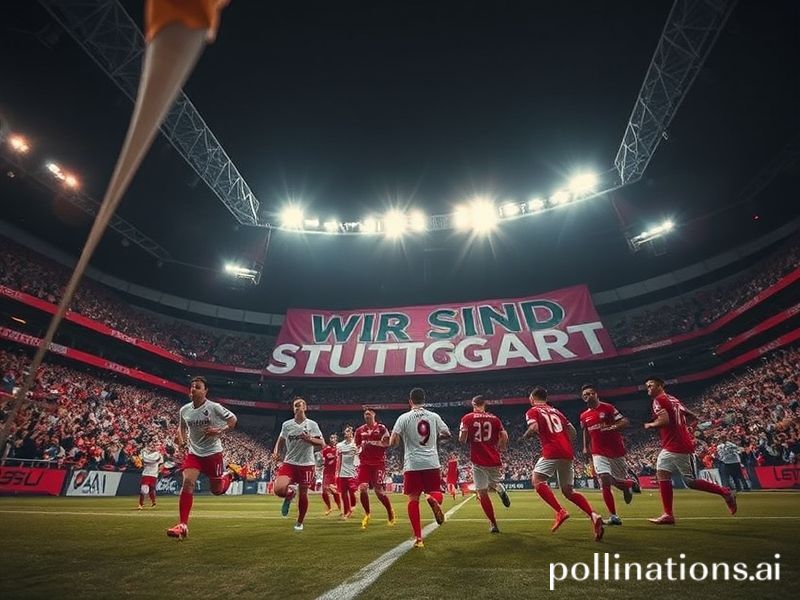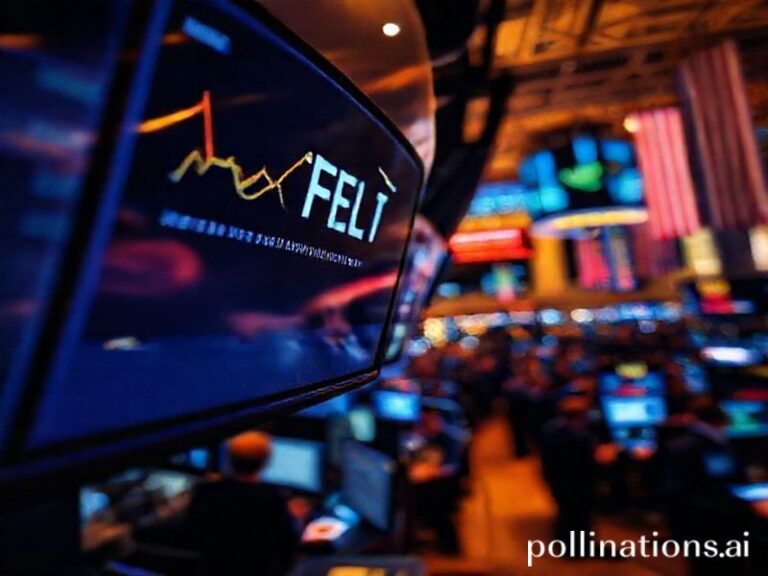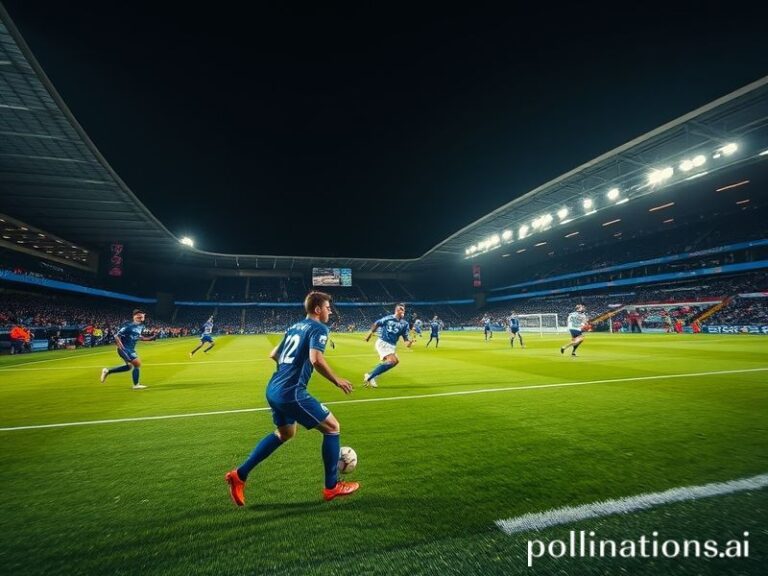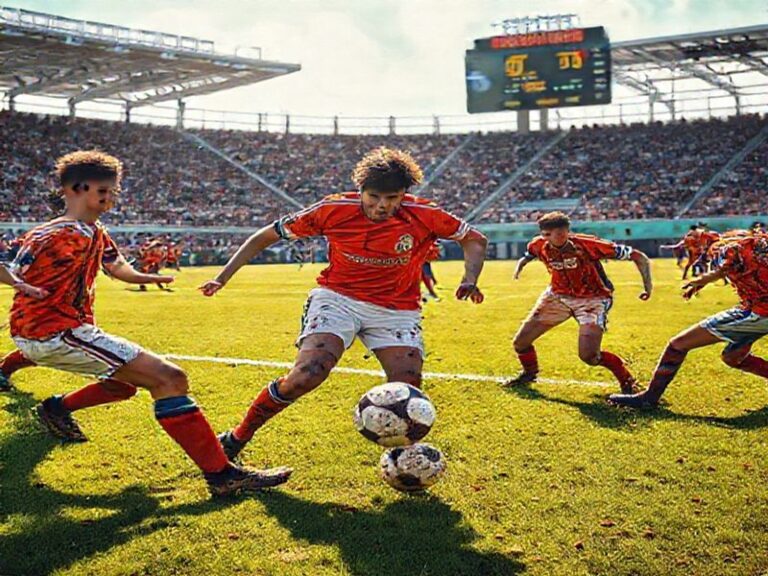Stuttgart FC: The Bundesliga Canary Singing in Global Capitalism’s Coal Mine
Stuttgart FC: How a Swabian Football Club Became the Canary in Global Capitalism’s Coal Mine
By Our Man in the Cheap Seats
Stuttgart – The first thing you notice at the Mercedes-Benz Arena on match day is the smell. It’s equal parts bratwurst, burnt rubber from the autobahn flyover, and the faint whiff of existential dread that now accompanies any gathering of more than 30,000 Europeans who still think Saturday afternoon is a safe space. VfB Stuttgart, once the polite southern cousin who brought good wine to the Bundesliga family reunion, has lately become something far more interesting: a convenient parable for every late-capitalist fever dream currently circling the planet.
Consider the numbers. The club sold 24.9 % of itself to a Cayman Islands–based fund whose mailing address is a P.O. box best reached by submarine. In exchange, Stuttgart got roughly one Kai Havertz ankle—cash that vanished into the yawning pit of player amortization faster than you can say “Financial Fair Play is more of a gentle suggestion.” Across town, Daimler is laying off software engineers whose code apparently offended the stock price, while simultaneously slapping its three-pointed star on the stadium façade like a sponsorship Band-Aid over structural unemployment. The message is clear: in the Swabian version of late modernity, even nostalgia is leveraged.
Global implications? Start with the fan protest that greeted the Cayman fund, a choreographed middle-finger ballet involving tennis balls, chocolate coins, and one inflatable flamingo wearing a necktie—symbols that traveled TikTok faster than the Bundesliga’s own highlight clips. Within 48 hours, Borussia Dortmund supporters were cutting the same figure into their tifos, Flamengo ultras in Rio translated the chant into Portuguese, and a Shanghai crypto-pump group adopted the flamingo as its unofficial NFT mascot. Somewhere in a Davos breakout room, a consultant now bills €1,200 an hour to explain “fan-tokenized resistance synergies.”
Back on the pitch, Stuttgart’s squad looks like a United Nations afterparty nobody really wanted to attend. There’s a Canadian left-back who learned German via Duolingo, a Japanese winger whose childhood dream was “literally any club except one beginning with S,” and—until his loan expired—a Serbian striker who filed his taxes in four countries and still ended up owing money to Liechtenstein. Their combined transfer fees equal the annual GDP of a small Pacific island, which, coincidentally, is now being courted by the same Cayman fund for a stadium-naming-rights deal. The circularity would be elegant if it weren’t eating itself alive.
Of course, the football itself remains stubbornly irrelevant. Stuttgart oscillates between relegation playoffs and Europa-League-qualifying sixth place with the emotional stability of a crypto portfolio on Elon Musk’s bathroom break. Each season is marketed as “the return to glory,” a phrase that sounds increasingly like a threat. Glory, after all, is now measured in Amazon Prime documentary views rather than trophies. Last year’s docuseries—a slick eight-part advert interrupted by occasional football—peaked in Bangladesh, where viewers thought “Stuttgart” was a new streaming algorithm.
And yet, the club persists, because that is what institutions do when they’re too big to fail and too sentimental to bury. On any given Saturday, 60,000 people still show up, half of them genuinely believing that 90 minutes of choreographed chaos might postpone the apocalypse. The other half are just there for the beer, the selfies, and the faint hope that someone will finally explain why the VAR screen takes longer than a Wagner opera to decide if a toe was offside. The answer, like everything else, is buried in a Cayman spreadsheet.
In the end, Stuttgart FC is not a football club so much as a global mood ring. When it wins, pundits hail the resilience of European soft power. When it loses, the same pundits diagnose continental decay. Either way, the flamingo wears a necktie, the fans keep singing, and the Cayman fund quietly clips its coupons. Somewhere, a consultant updates the PowerPoint: “Leverage fan passion for stakeholder alignment.” Translation: sell them the rope, then charge admission to the hanging.
The final whistle blows. The crowd disperses into the Swabian night, slightly poorer, slightly drunker, and none the wiser. Capitalism, like a stubborn striker, always gets its rebound. Stuttgart just happens to be the current goalie—gloves bright white, knees already trembling, praying the next shot goes wide.







